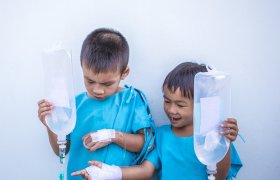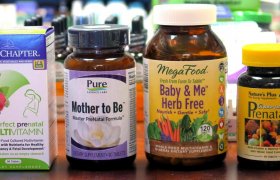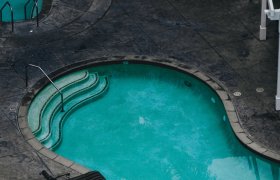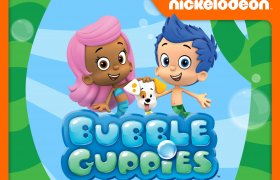Establishing Personal Hygiene Habits for Children
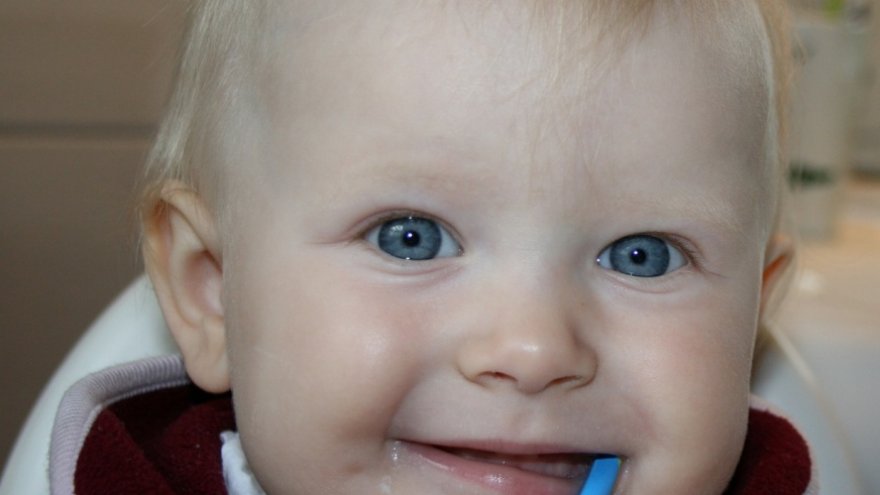
When you teach children the importance of good personal hygiene and what it involves through all ages, you are teaching them a lifetime of good hygiene habits. No one wants their kid to be the smelly one on the block or in school, but convincing them of the importance of good hygiene can be frustrating so the best idea is to start young. Kids think lather, rinsing, and washing are a hassle when they can just hose off in the summer outside. You won’t see a lot of great cooperation until they reach their teens when they are glued to the mirror in the bathroom. There is more than just bathing and washing their hair, brushing hair and dental hygiene is just as important. There is a way for you to get through this with your child because there are ways to make this journey to having an independent and squeaky clean child. Here are 7 helpful habits for helping your child to learn proper hygiene.
Start with the Basics
One of the most important things to teach your children is washing their hands several times a day. You especially want them to wash after going to the bathroom and make sure you teach them to wash their hands good. 15 seconds of appropriate lather and scrubbing and then rinsing should do the job after a bathroom visit. Use soap and water and not hand sanitizers because soap gets the hands much cleaner. You can choose a song and sing it with them and when the song is over, this should be the right amount of time for your child to get their hands clean.
Have Fun with Hygiene
You can turn blowing a runny nose into your best horn impression. You can use the shampoo lather to design their hair into funny hairdos or use bubbles from bubble baths to make beards. Most little children love to brush their teeth but if you have a problem with your child, you can always do a silly dance together because no one said hygiene has to be a chore.
 Lead by Example
Lead by Example
Have your child watch you doing your daily hygiene routine to set an example. Invite your child to come into the bathroom and have him or her watch you brush your teeth and gums. They can watch you comb your hair, and have them watch you wash your face. Remind yourself in front of your child that you have to wash your hands before dinner. If your kids see you taking care of your hygiene, they will follow without complaining.
Explain the importance of Grooming
It’s important to tell your children that it’s necessary to wash their hands so they don’t catch germs from other children and get sick. The disease is dangerous and rampant and the importance of your children knowing this is because of the danger of disease. Good hygiene habits will help lay the foundation for teaching them about sexually transmitted diseases (STD) later on in life.
Make use of visual and other resources
Believe it or not, there is also an app for teaching your child about grooming. For starters, you can download Pepi bath. This app allows your child to choose whether they are a boy or a girl character and role play. They can put clothes in the washing machine on this app, wash their hands, shampoo hair and even use the toilet in a fun way. There are also tons of videos and children’s books on hygiene. You can relax while their favorite character teaches your child about the importance of proper hygiene.
Buy them something special they are looking forward to
A fun way to teach children to be independent about their own grooming. Is to add a little excitement to this task by adding in a bit of incentive. It just takes a little bit of imagination to make mundane chores exciting. Find some great new bath toys.
Make this a routine
As parents, we sometimes hear things time and time again. Children need and thrive on routine! Make sure you include morning and evening tooth brushing and hair brushing into your children’s routine. When they get used to doing these chores daily, they begin to accept them as part of their daily life. They might even surprise you and remind you that you forgot this important part of the daily routine.
 Deodorant and Toiletries
Deodorant and Toiletries
Kids are beginning to sweat and develop more at quite a young age more so than the generations before us. Some children begin wearing deodorant by 1st or 2nd grade. The children are taller and have more weight on them than the generations before us. You are the teacher and have to talk to them about starting to wear deodorant. You will know the right time because you will begin to smell your child. Most companies have put out many products so go on a small shopping expedition and let them pick out their deodorant, shampoo, conditioner, a nice loofah and now there are many kinds of body washes to choose from. In addition, there is nothing wrong with sticking to a good old bar of traditional soap and a washcloth. Tell them to pick out some q-tips, so the wax doesn’t start growing in their ears. You can also let them pick out a special bag for their new toiletries so everyone in the house knows it’s your child’s. Do this for each child so they can establish their own taste in products and identities. This will also help make your child feel important.
When you start bathing your newborn for the first few times, they might cry but they soon will find comfort in the water. This starts your child’s way to learn about hygiene. As they become toddlers, most if not all toddlers love their baths. They might not all like their hair washed because of soap in the eyes but if you tilt your child’s head back and rinse the water gently with a cup, your child won’t get soap in their eyes. Eventually, your little one might surprise you and ask you if he or she can take a warm bath. This might be during the middle of the day, but never discourage your child if they ask you to practice brushing his or her teeth. There are so many cute little toothbrushes for children and in addition, toothpaste as well. Make sure the toothpaste is approved by the American Dental Association ADA). Most toothpaste is approved but some children have sensitive teeth and gums so there are a variety of brands of toothpaste and toothbrushes.
Parents always want the best for their children. They won’t learn all these great little habits unless you as parents teach them to practice all the knowledge that you have obtained while growing up from your parents. Hygiene is actually one of the easier tasks in life that you have to teach your child.

